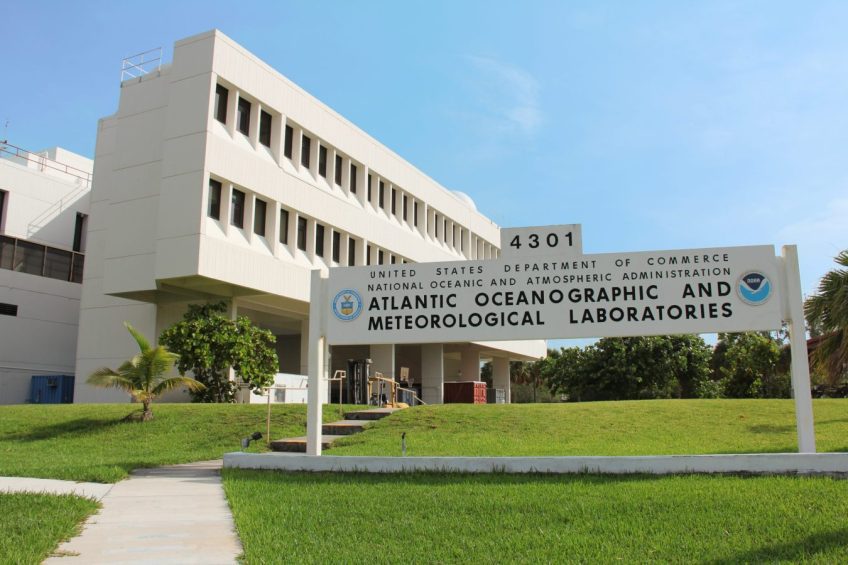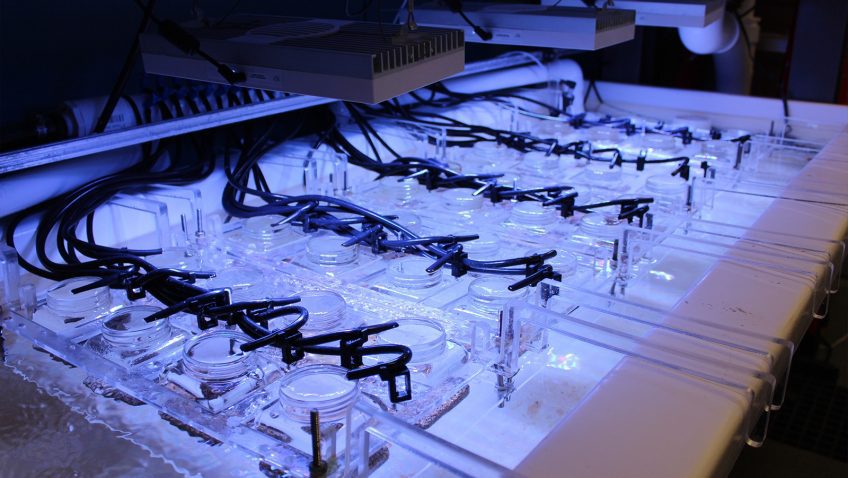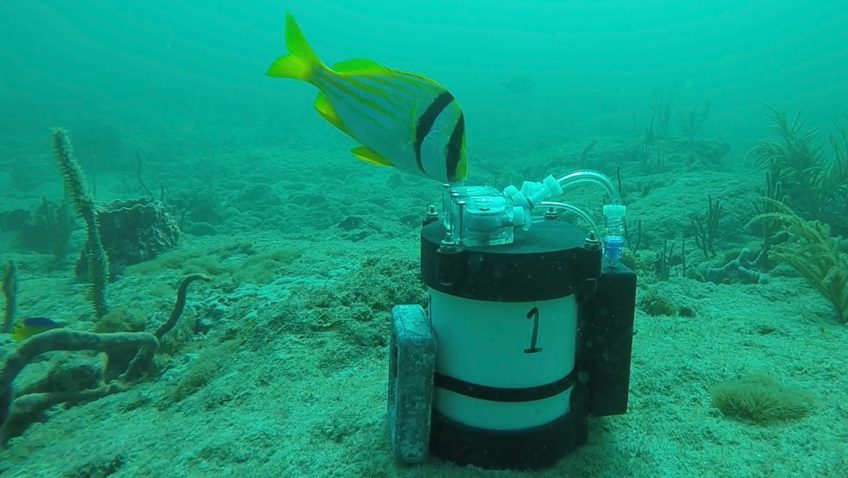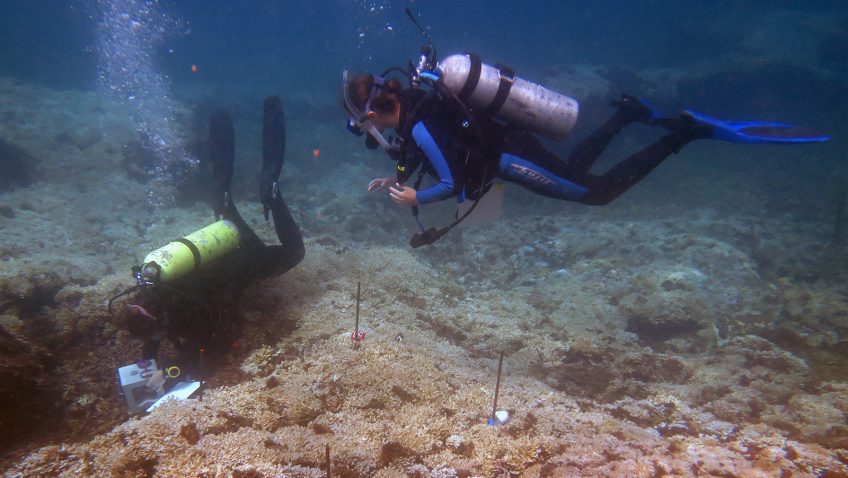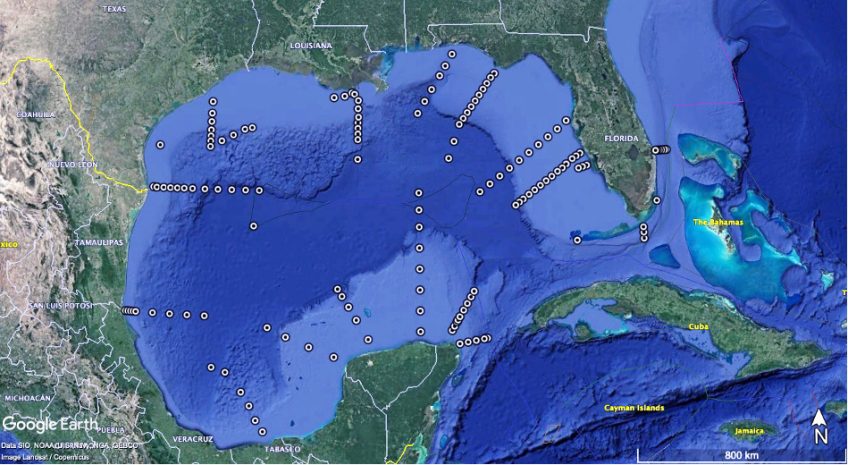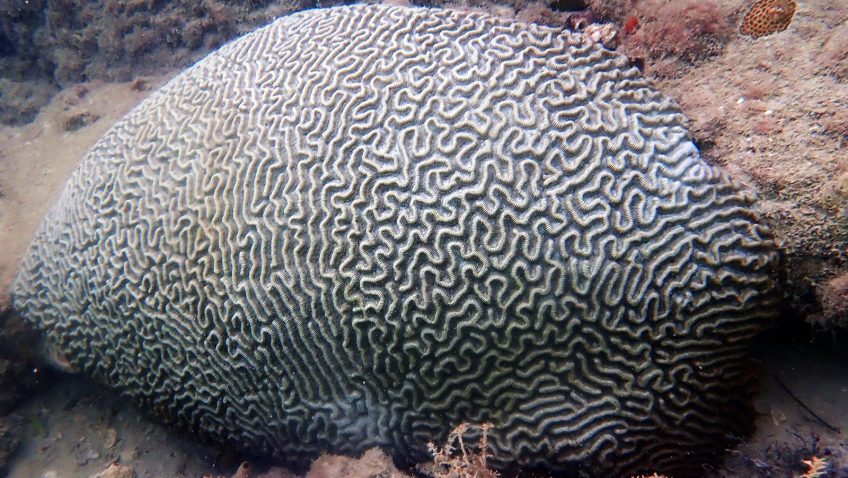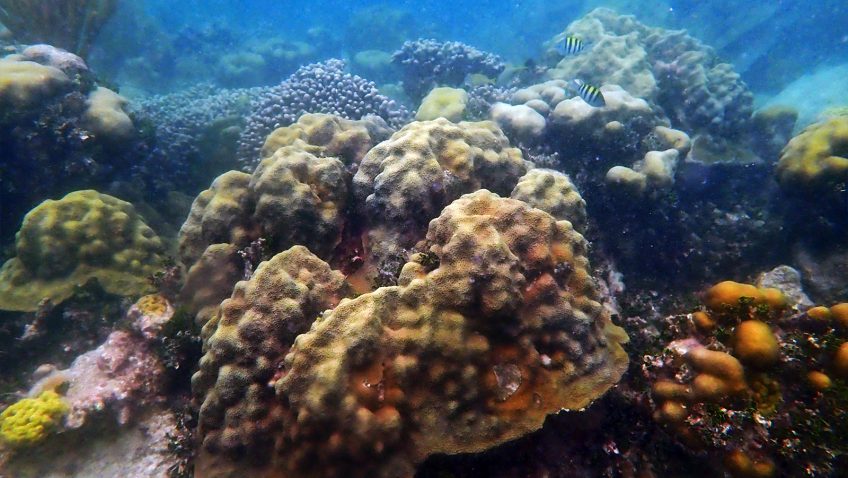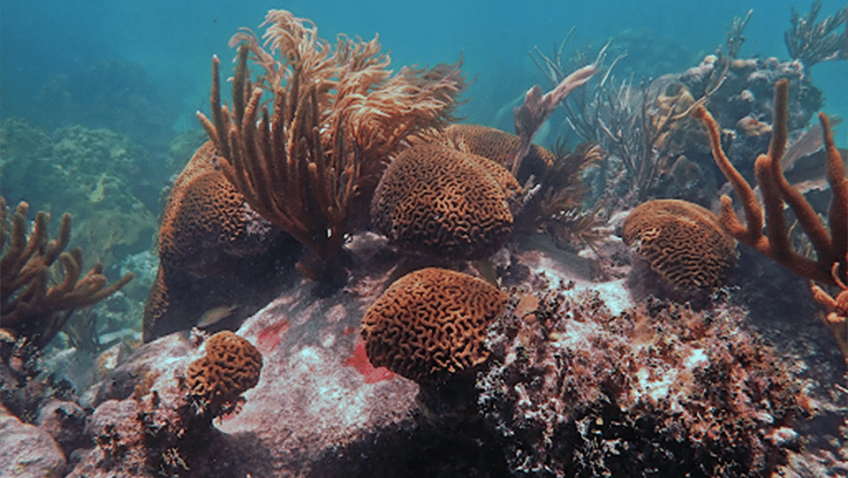NOAA’s Atlantic Oceanographic and Meteorological Laboratory is pleased to announce Jasmin John as AOML’s Ocean Chemistry and Ecosystems Division new deputy director.
Read Full Article
MIAMI—A new study found that seafloor sediments have the potential to transmit a deadly pathogen to local corals and hypothesizes that sediments have played a role in the persistence of a devastating coral disease outbreak throughout Florida and the Caribbean.
Read Full Article
Scientists at NOAA’s Atlantic Oceanographic and Meteorological Laboratory (AOML),the Cooperative Institute for Marine and Atmospheric Studies (CIMAS) at the University of Miami Rosenstiel School of Marine and Atmospheric Science, and the Northern Gulf Institute at Mississippi State University have engineered a new instrument that will provide valuable information about the biodiversity of aquatic ecosystems. A recently published paper in Hardware X describes the design and creation of a low-cost, open-source sub-surface automated environmental DNA (eDNA) sampler (SASe), for sampling eDNA in the water column. The SASe represents a milestone for AOML as one of the first pieces of technology to go through a rigorous transition process from the desks of scientists in the laboratory, through organizational approval channels, to the wider scientific community with full accessibility to the public.
Read Full Article
Coral Restoration and Resilience Informing and Enhancing Coral Restoration SCROLL TO LEARN MORE <!-- JUMP TO DATA OR SCROLL TO LEARN MORE --> What We Do Coral Reefs are being damaged by environmental change, pollution, ship groundings, and disease. Coral cover is declining worldwide, and widespread ecological degradation has impacted the structure, function, and services [...]
Read Full Article
Trying to predict how coral reefs will respond to warming oceans and a changing climate may be considered a daunting task for scientists. In the face of this challenge, scientists at AOML recently published a study that characterizes the organisms and processes that lead to coral reef accretion (build up) and bioerosion (break down) in the dynamic environments of the Gulf of Panama and Gulf of Chiriqui in the eastern Pacific.
Read Full Article
AOML scientists and partners from an assortment of universities and Cooperative Institutes successfully completed the most comprehensive ocean acidification sampling of the Gulf of America to date with the conclusion of the fourth Gulf of America Ecosystems and Carbon Cruise, also known as the GOMECC-4 cruise. The research effort aboard the NOAA Ship Ronald H. Brown began out of Key West, Florida on September 13, 2021 with 25 scientists and graduate students aboard. It ended 39 days later on October 21 with a port stop in St. Petersburg, Florida.
Read Full Article
When we look at the state of corals globally, it can be difficult to see a silver lining, but a recent paper published in Frontiers in Marine Science shows hope for corals in unlikely places. In the study, scientists at NOAA’s Atlantic Oceanographic and Meteorological Laboratory (AOML) and the Cooperative Institute for Marine and Atmospheric Studies (CIMAS) at the University of Miami Rosenstiel School of Marine and Atmospheric Science compared the molecular processes of brain corals (Pseudodiploria strigosa) living in urban waters at the Port of Miami with offshore corals at Emerald Reef. They found the urban corals had adapted to challenging conditions that helped them differentiate and consume healthy food particles over diseased organisms.
Read Full Article
AOML’s newest issue of the Keynotes Newsletter is now live! This issue offers in-depth research highlights about new technology for the 2021 hurricane season, the ocean’s role in fueling hurricanes, new uses for Ship of Opportunity Data, new research on heat tolerant corals, eDNA and it’s connection to marine food webs, new sargassum tracking tools, recent publications, and more.
Download the Full Issue.
Read Full Article
It can be hard to stay upbeat as a marine biologist, especially with the onslaught of existential threats like climate change facing the planet. Coral reefs are arguably the ecosystem that stands to lose the most with respect to climate change, namely because the resident organisms are highly sensitive to elevated temperatures. Furthermore, the limestone-based reef framework itself is diminishing before our eyes due to the accompanying rise in carbon dioxide levels (which decreases oceanic pH, leading to ocean acidification). That being said, there are corals out there that display resilience, continuing to thrive in habitats that would appear decidedly marginalized to even the untrained eye.
Read Full Article
Coral scientists at NOAA’s Atlantic Oceanographic Meteorological Laboratory (AOML) and the University of Miami Rosenstiel School’s Cooperative Institute for Marine and Atmospheric Studies (CIMAS) will be presenting their research at the 14th International Coral Reef Symposium (ICRS) from July 19-23, 2021, which will be held virtually for the first time in the history of the ICRS.
Read Full Article
